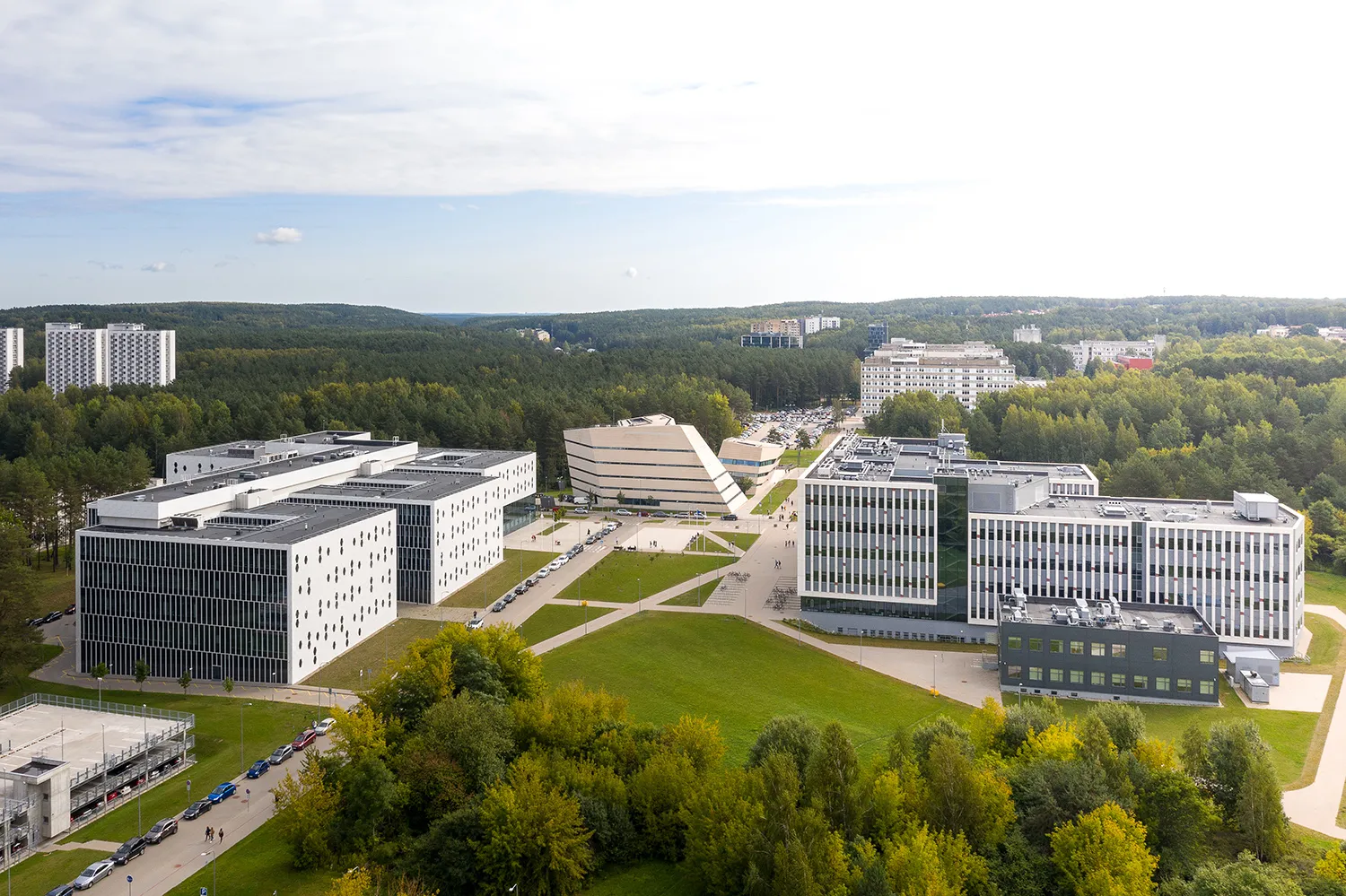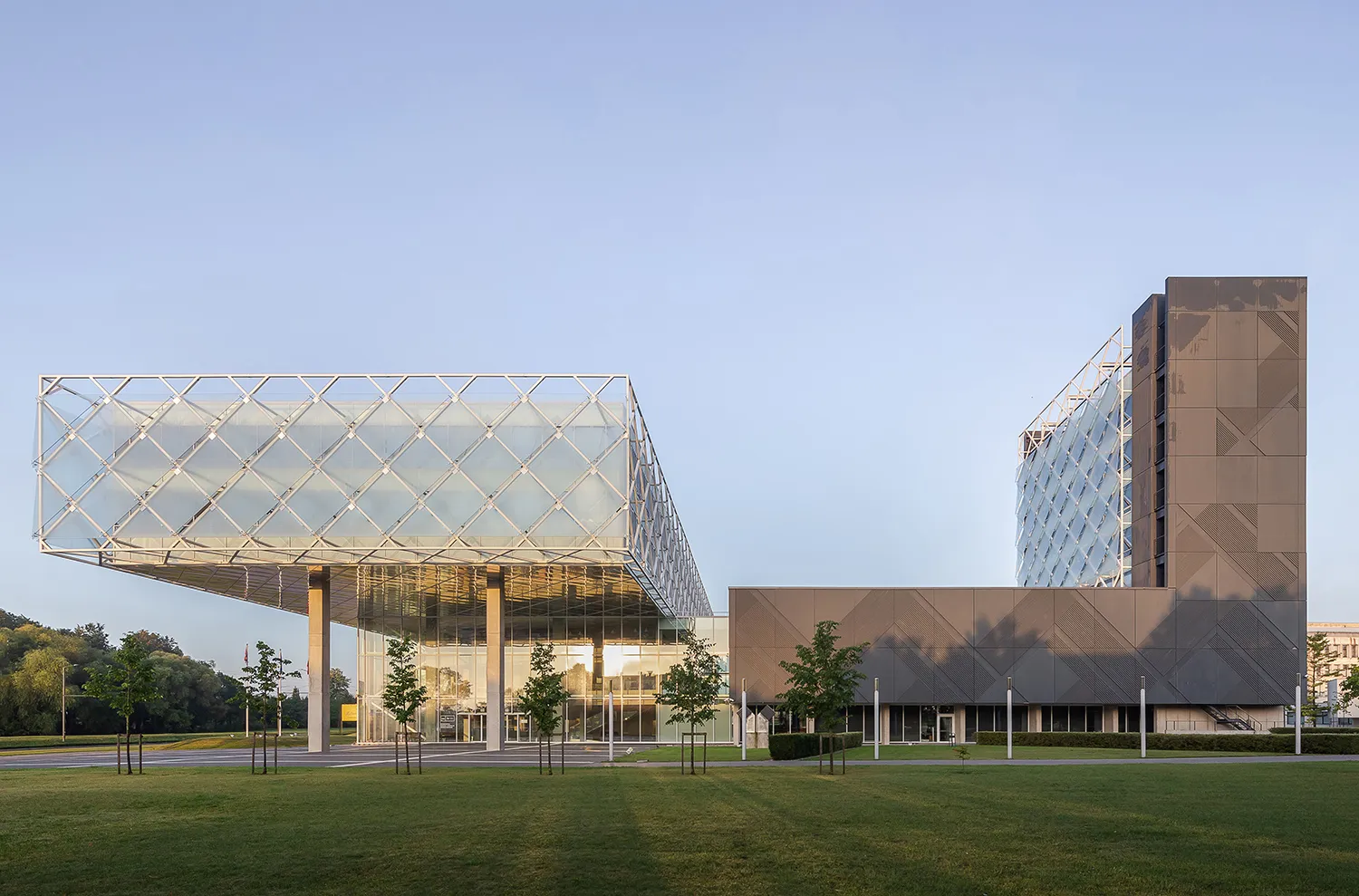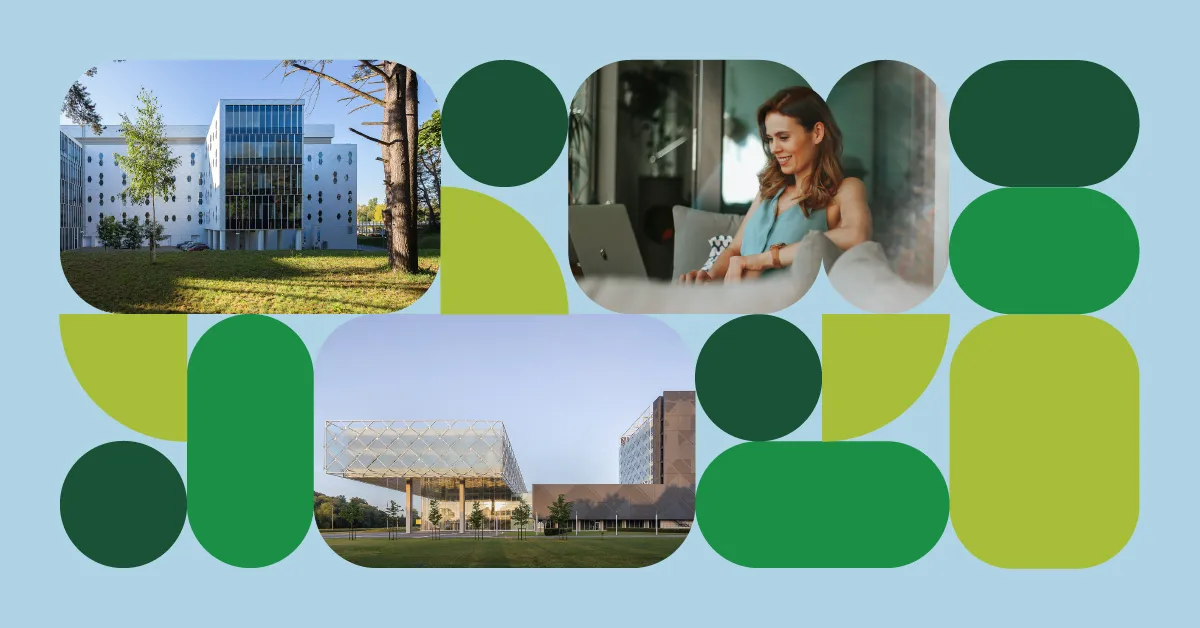Lithuania is increasingly being recognised as a dynamic hub for science, research, and innovation in Europe. Its network of science and innovation parks plays a pivotal role in enabling startups, research institutions, and global companies to collaborate, scale, and thrive. These parks are more than just real estate: they underpin the country’s innovation, stimulate R&D investment, and serve as key magnets for firms choosing to invest in Lithuania.
Lithuania’s innovation ecosystem overview
Lithuania’s innovation ecosystem is supported by strong R&D infrastructure, anchored in national universities, clusters, and accelerator networks. The country is 5th in the EU for science, math, computing, engineering, manufacturing and construction bachelor graduates in the young adult population.
Additionally, the state and the EU provide significant funding and grants for research, technology transfer, and innovation. As a result, sectors such as fintech, biotech, ICT, and life sciences are increasingly drawing both domestic and foreign investment. This environment reinforces Lithuania’s attractiveness to international firms seeking pathways into next generation technologies.
Major Science and Innovation Parks in Lithuania
Let’s explore Lithuania’s leading science parks and the unique strengths that define them.

Sunrise Valley Science & Technology Park in Vilnius © N. Tukaj
Sunrise Valley Science & Technology Park (Vilnius)
Founded in 2003, Sunrise Valley (SSMTP) lies in the heart of Vilnius’ knowledge triangle (study, research, business). It nurtures startups, provides incubation and infrastructure, and aligns with clusters in cleantech, life sciences, and ICT. It also houses open access centers and serves as a Digital Innovation Hub.
Key facts:
- Sunrise Valley is home to Lithuania’s two largest and most prestigious universities — Vilnius University and Vilnius Gediminas Technical University (VILNIUS TECH) — creating a vibrant ecosystem where over 5,000 scientists and researchers work side by side.
- The park also hosts a Biotechnology Business Incubator, fostering innovation and collaboration in the life sciences sector.
- Through its Centre for Technology Transfer, Sunrise Park received nearly €376,000 in EU structural funds to help transfer research outputs to business applications.
- The park also hosts the GENESIS project, which focuses on bridging regional innovation, circular economy practices, and cross regional collaboration from 2025 to 2027.

Kaunas Tech Park © N. Tukaj
Tech-Park Kaunas / Kaunas Science & Technology Park
Tech-Park Kaunas, merged from earlier institutions and now part of the “Santaka” valley framework, supports more than 100 companies in health tech, IT, engineering, sustainable chemistry, and more. It operates business incubators, R&D labs, and accelerators like Medaccelerator.lt for health technology developers.
Key facts:
- Kaunas STP has incubated more than 200 companies, with an incubation success rate exceeding 90%.
- It’s the only science park in Lithuania that combines business incubation, a Technology Demonstration Centre, and on-site R&D laboratories.
- Over 90% of employees in Kaunas STP companies are students, graduates, or academic staff from Kaunas University of Technology – illustrating strong integration with university talent.
The Santaka Valley in Kaunas integrates academic, clinical, and research facilities, offering synergies for life sciences and medical innovation.
Other regional parks – Klaipėda Science and Technology Park, Panevėžys STP, Visoriai IT Park (Vilnius) – also contribute to geographically distributed innovation across Lithuania.
How Innovation Parks support business growth
Science and Innovation Parks in Lithuania provide more than infrastructure, they offer ecosystems:
- Spaces & Labs: Ready-to-use lab space, offices, pilot production and testing facilities.
- Talent & Partnerships: Close connections with universities and research institutions ensure access to skilled graduates and opportunities for collaboration. Lithuania boasts the highest share of women scientists and engineers in the EU – 52% – and 85% of young professionals are proficient in English.
- Networking & Clusters: Park residents become part of sector clusters and gain introductions to investors, mentors, and international networks.
- Startup Services: Incubation, mentoring, go-to-market support, and facilitation of technology transfer accelerate growth for young firms. For manufacturing innovators – 5% corporate profit tax for patented products and 3x deductible expenses for R&D.
These capabilities make science parks ideal for foreign investors and firms starting a business in Lithuania, enabling lower risk and faster scaling.
Incentives and support for R&D investment
The Lithuanian government promotes R&D investment through tax incentives, innovation grants, and access to EU co‑funding. Companies investing in research can deduct R&D costs, benefit from accelerated depreciation of R&D assets, and tap into innovation vouchers or structural funds.
Amongst the most interesting incentives and government support:
- Patent Box: a reduced corporate tax rate of 6% for profits from patented software and inventions.
- Free Economic Zones: businesses in FEZ enjoy 0% corporate tax for the first 10 years and no more than 8% for the following six years, along with exemptions from tax on dividends and real estate tax.
- State Support: Potential qualification for state funding, negotiated on a case-by-case basis.
- Green Corridor initiative: fast-tracks large-scale investment projects with 0% corporate tax for 20 years, streamlined planning, and faster decision-making from public authorities, ensuring smoother setup and long-term success.
Lithuania’s science and innovation parks are foundational pillars of the country’s innovation ecosystem. For R&D-driven companies, these parks offer not just space, but a full stack of support: infrastructure, talent pipelines, funding, and strategic partnerships.
For investors exploring Europe’s innovation landscapes, Lithuania stands out as a smart choice to invest and embed into a fast-evolving, cluster-ready ecosystem. Whether in biotech, ICT, life sciences or sustainable innovation, these parks offer a launch pad for growth, access to EU networks, and the institutional backing to help projects succeed.












